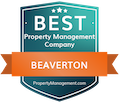Bob Thomas:
I'm Bob Thomas. I run the Pacific Northwest for Merchants Mortgage, we're a debt fund headquartered in Denver. We do about half a billion dollars give or take worth of hard money a year across the Western U.S. Mainly, mostly is fix and flip residential properties.
Bob Thomas:
But we do dabble in construction as well as different commercial bridge lending, and then create commercial stuff. We did a deal with AJ and Chris, they did a little syndicated value add multi-family deal for them, so that was another commercial property. But I've been with the company for three years now, before that, I was a commercial real estate broker with CBRE down to the Bay area. I'm a formerly a CPA. So I've got an accounting, public accounting finance background. And Adam works with me in Portland. [inaudible 00:01:23] tell them about yourself?
Adam Hartfeil:
Yeah. My name is Adam Hartfeil. I work with Bob, I've been with him now for two and a half, three years-ish, and have a little bit more of background from the traditional banking side and came over to hard money because a lot less red tape. And I focus on the Oregon, Washington area, and I'll just be walking you through more of the overview of hard money, how it's used when it's used. And Bob will start our presentation off.
Bob Thomas:
Awesome. So this very well maybe something you guys know all about, but I'm going to take it from a level of, you've never done hard money before, and maybe you're just starting to look at fix and flips or some sort of real estate investing and I'm going to take us from there all the way through to give you a really good sense of what hard money is, how it can be used and how it fits into the bigger picture of real estate investing. So to start out, I do a lot of real estate investing as well as doing the lending, I've done syndications on ground-up apartment buildings. I own some value add and stabilized units around Oregon. So, I'm not only a lender, but I also do this full-time.
Bob Thomas:
And so when I look at a property, it's like you look at the total cost of what a property is going to take, and how do you finance that? So if we look at a million-dollar property, say you can buy that million-dollar property all-cash, right? If you have a million bucks and you got nothing better to do with it, you can put it in there, and if you sell it for 1.5 in a couple of years, you make 500 grand, that's great. But if you look at your return on your money, you put in a million bucks to make 500 grand. So you ended up making like a 50% return on your money. And then when you start looking at how leverage works into that debt or other with finance and property, basically the whole game in my mind, and a lot of our clients is reducing the cash that you need to bring in, whether it's through getting a lender to give you a loan or bringing in an equity partner or some other way of not using your own cash.
Bob Thomas:
So instead of spending a million dollars of cash and making 500 grand, getting a 50% return, maybe you only put in a 100 grand and you borrowed, raised 900 to make that deal work. And then when you sold in five years, there's a cost but your 100 grand made 500 grand, and another five X on your money instead of a 50% return. So when you're thinking about what is hard money? What are other financing vehicles?





